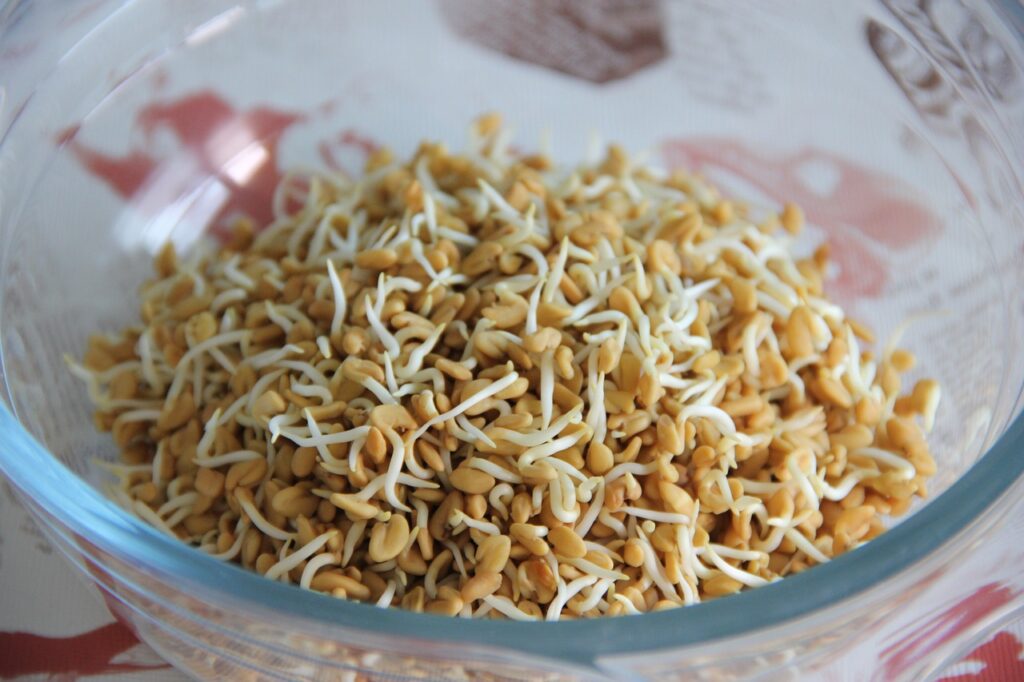In the world of nutrition, certain foods stand out for their exceptional health benefits, and Anjeer, commonly known as figs, is undoubtedly one of them. Packed with essential nutrients, Anjeer has been a staple in various cuisines for centuries, revered not only for its delightful taste but also for the myriad of health advantages it offers. This article delves into the extensive range of health benefits of Anjeer, shedding light on why you should consider incorporating this powerhouse of nutrients into your daily diet.
Health Benefits of Anjeer:
1. Rich in Dietary Fiber:
Anjeer is a fantastic source of dietary fiber, which plays a crucial role in maintaining digestive health. Fiber aids in preventing constipation, promoting regular bowel movements, and supporting a healthy gut microbiome. Including anjeer in your diet can contribute to overall digestive well-being.
2. Nutrient Powerhouse:
Figs are loaded with essential vitamins and minerals, including vitamin A, vitamin K, potassium, magnesium, and iron. These nutrients are vital for maintaining optimal bodily functions, such as bone health, blood clotting, and immune system support.
3. Heart Health Booster:
Anjeer is known to be heart-friendly, thanks to its potassium content. Potassium helps regulate blood pressure, reducing the risk of hypertension and cardiovascular diseases. Incorporating figs into a heart-healthy diet may contribute to a lower risk of heart-related issues.
4. Antioxidant Properties:
Figs are rich in antioxidants, such as polyphenols and flavonoids, which play a crucial role in neutralizing free radicals in the body. Antioxidants help protect cells from damage, potentially reducing the risk of chronic diseases and promoting overall well-being.
5. Blood Sugar Regulation:
Research suggests that anjeer may aid in managing blood sugar levels, making it a beneficial addition for individuals with diabetes. The soluble fiber in figs helps slow down the absorption of sugar, contributing to better blood sugar control.
6. Weight Management:
Including anjeer in a balanced diet may support weight management efforts. The fiber content promotes a feeling of fullness, reducing overall calorie intake. Additionally, the natural sweetness of figs can satisfy sugar cravings in a healthier way.
How to Incorporate Anjeer into Your Diet:
Now that we’ve explored the myriad benefits of Anjeer, let’s discuss creative ways to include these nutritious gems in your daily meals:
1. Snack on Dried Figs:
Dried figs make for a convenient and delicious snack. Keep a handful with you for a quick energy boost during the day.
2. Add to Breakfast:
Sprinkle chopped anjeer over your morning cereal, yogurt, or oatmeal for a nutrient-packed start to your day.
3. Blend into Smoothies:
Enhance the nutritional profile of your smoothies by adding fresh, overnight soaked figs or dried figs. They pair well with various fruits and greens.
4. Include in Salads:
Toss sliced figs into salads for a burst of sweetness and added vitamins. They complement both savory and sweet salad combinations.
Conclusion:
Anjeer, with its remarkable health benefits, stands out as a versatile and nutritious addition to any diet. Whether you’re aiming to improve digestive health, boost your heart’s well-being, or manage your weight, incorporating figs into your meals can be a tasty and rewarding choice. Embrace the goodness of anjeer and unlock a world of wellness through the simple act of enjoying these delectable fruits.
Frequently Asked Questions (FAQ) About the health benefits of Anjeer (Figs):
Q1: What is Anjeer?
A1: Anjeer, commonly known as figs, is a nutritious and delicious fruit that comes from the Ficus carica tree. It is known for its sweet taste and unique texture.
Q2: What are the nutritional benefits of Anjeer?
A2: Anjeer is a rich source of dietary fiber, vitamins (A and K), minerals (potassium, magnesium, iron), and antioxidants. It promotes digestive health, supports heart health, and provides essential nutrients for overall well-being.
Q3: How can Anjeer contribute to digestive health?
A3: Anjeer is packed with dietary fiber, which aids in maintaining regular bowel movements, preventing constipation, and supporting a healthy gut microbiome.
Q4: Can Anjeer help in weight management?
A4: Yes, the fiber in Anjeer promotes a feeling of fullness, potentially reducing overall calorie intake. It can be a satisfying and nutritious addition to a weight management plan.
Q5: Is Anjeer good for heart health?
A5: Absolutely. Anjeer contains potassium, which helps regulate blood pressure, reducing the risk of hypertension and cardiovascular diseases.
Q6: How does Anjeer affect blood sugar levels?
A6: The soluble fiber in Anjeer may help in managing blood sugar levels by slowing down the absorption of sugar. It can be a beneficial addition to a diabetic-friendly diet.
Q7: Can Anjeer be consumed by individuals with dietary restrictions?
A7: Anjeer is a versatile fruit suitable for many dietary preferences. However, individuals with allergies or specific dietary restrictions should consult with a healthcare professional before adding it to their diet.
Q8: Are there any side effects of consuming Anjeer?
A8: In general, Anjeer is safe for consumption. However, excessive intake may lead to digestive issues in some individuals. It’s advisable to consume it in moderation as part of a balanced diet.
Q9: How should Anjeer be stored to maintain freshness?
A9: Store fresh Anjeer in the refrigerator to maintain freshness. Dried figs can be stored in a cool, dark place. Ensure proper ventilation to prevent moisture.
Q10: What are some creative ways to include Anjeer in the diet?
A10: Anjeer can be enjoyed in various ways. Snack on dried figs, add them to breakfast cereals or salads, blend them into smoothies, or incorporate them into baking recipes for a delightful twist.
Q11: Can Anjeer be given to children and pregnant women?
A11: Anjeer can be a nutritious addition to the diets of children and pregnant women. However, individual dietary needs may vary, and it’s advisable to consult with a healthcare professional for personalized advice.
Q12: Are there different varieties of Anjeer?
A12: Yes, there are several varieties of figs, each with its own unique flavor and texture. Common varieties include Black Mission, Brown Turkey, and Kadota.
Q13: Can Anjeer be beneficial for skin health?
A13: The antioxidants in Anjeer may contribute to skin health by protecting cells from damage. However, for specific skin concerns, a well-rounded skincare routine is recommended.
Q14: Are there any Anjeer recipes available for those looking to try something new?
A14: Absolutely! There are numerous recipes that incorporate Anjeer, ranging from salads and desserts to savory dishes. Explore online platforms or cookbooks for inspiration.
Q15: Is Anjeer suitable for those with gluten intolerance or celiac disease?
A15: Anjeer is naturally gluten-free and can be a safe and tasty option for individuals with gluten intolerance or celiac disease.
Remember, while Anjeer offers many health benefits, individual responses to foods may vary, so it’s always a good idea to consult with a healthcare professional or nutritionist for personalized advice.





